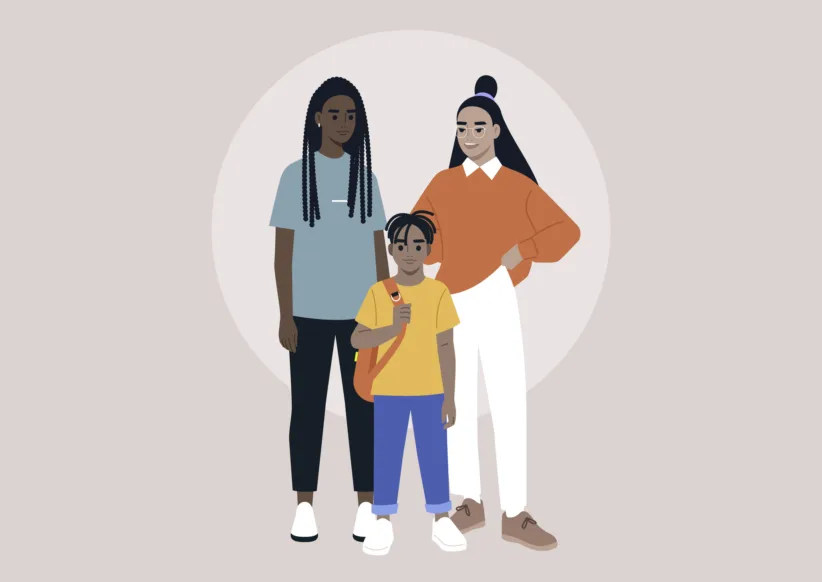Separation and divorce can be devastating on all of the family members involved. Feeling vulnerable, we may lean on our kids more than is healthy. Parentification, a type of role reversal where a child cares for the parent, rather than the other way around, is a prime example. For a weary — even shattered — adult, relying on a child can ease the burden, but it is damaging to the child.
“Parentification can rob an individual of his childhood by placing an enormous level of stress on the child, forcing him to grow up too quickly,” says licensed clinical social worker Ari E. Fox, a child and adolescent therapist in New York City.
During parentification, a parent may turn her child into a full-fledged confidant, or even a pseudo spouse. A child may also be relied upon to perform an excessive amount of chores and take care of younger siblings.
Of course, assigning chores and having a mature older sibling babysit on occasion can help children learn responsibility (and make your life easier); and sharing a certain amount of information with them is necessary. For example, if you need to move to a new home, it is better to tell your children beforehand, so that they have time to adjust, rather than surprising them with the news the night before.
So what are the limits? What is appropriate to share with a child? Ask yourself the following:
• Do you think of your child as your “best friend?” Upon coming home from a date, do you share many details with your son or daughter?
• When dealing with stress, do you look to your child, figuratively or literally, for a shoulder to cry on?
If so, you may well be crossing a line, to the detriment of your child. Granted, older teenagers can generally handle more than younger children, but there should be very real boundaries.
It is one thing to breakdown in front of your children on occasion. This happens, and can even have a positive side, in that it allows children to see that you are human. But, such an experience can be very frightening to a child — he needs to know that you are in control, and may wonder, “If Mom can’t take care of herself, how can she take care of me?”
So, after the well-deserved meltdown, let your child know that you are alright. You can say, “I’m sorry about the crying. Sometime’s it’s hard, and I don’t handle the stress so well. But mostly, I’m doing OK. The time I spend (however you relieve your stress) really helps me. I know we’ll get through this and that things will get better.”
Be aware that children may not see any problem in acting the adult. Hearing about a new love interest in your life can make a child feel grown up, and what kid doesn’t want that?
But, while children may seem to handle the grown-up role, they pay a price.
“[Parentified children] often have difficulty with attachment, and struggle with relationships as adults,” notes Fox. “They can become quite angry at their plight and what they have given up in their lives.”
We all need help sometimes — but you shouldn’t look to your children for it during divorce. Consider a support group, therapist, or divorce coach. Do what you need to do to strengthen yourself — and let your child worry about his next math test, acne, and getting a date with that girl he likes.
Lee Chabin, Esq., a divorce mediator and collaborative divorce lawyer, helps clients end their relationships respectfully and without going to court. Contact him at [email protected] or at (718) 229-6149. You can also visit lc-mediate.com/home.





















